Mr. Abbas Araghchi is currently responding to many questions in Tehran. He defended the deal as opening many opportunities for Iran’s economy bringing many Europeans to Iran. However, Mr. Araghchi criticized the general trend in the country’s political arena to interpret the deal in line with their parochial partisan interests which he believed indicated a sort of political development and a progress in party system of the country.
In terms of foreign impression the JCPOA had, nuclear negotiator believed the vilified image the international community had from Iran had been shattered by UN resolutions cancelled an now there had been a fresh image of the country as a member of the international community. Araghchi also held that frequenting by the Europeans to Tehran indicated government’s success in opening the space for international companies to find footholds in Iran which was impossible before.
Mr. Araghchi’s defense of the JCPOA reiterated the modest success the government had been citing as an outcome of the deal: small openings for Iran’s financial system to do transactions with global banking system at large. Peaceful cases of uranium enrichment was also cited as groundbreaking where Iran’s nuclear program was not deemed threat to international community.
Araghchi also said that Iran was in the road to industrial enrichment which would meet the domestic needs as well as provide material for exports.
"Iran will never renoegotiate JCPOA either with current administration or Trump's," said Mr. Araghchi, responding to questions by the press about Mr. Trump's pledge to reneogtiate the deal to attain the better one for the US interests.
"Mr. Trump would only either accept or reject the deal; JCPOA is a finished deal for Iran and the country will never sit to renoegotiate a deal which has internationnal powers' support behind," he added.
Araghchi however admitted that in banking sector the conditions for Iranian financial system were far from satisfactory, with only minimal number of banks willing to work with Iranian banks. He ascribed the technical difficulties to causes other than those related to JCPOA where US sanctions before the deal had been hitting the economy for decades; “the US financial system has not allowed Iran to trade in dollars. This creates huge problems almost insurmountable in international banking,” he added. “Other obstacles include anti-money laundering rules and measures to watch over financial support for terrorism. Nevertheless, Iran’s banking system never felt in the dead end and managed to circumvent the hurdles to do transactions with global system.”
In terms of oil and gas, nuclear negotiator believed oil exports bounced to its level before sanctions; “now, Iran exports 2.5 million barrels of crude per day, while before JCPOA, it was severely restricted to well below 1 million barrels; the industry enjoy modest openings in terms of receiving oil money which had been blocked in foreign banks before the JCPOA,” Araghchi told the press.
“An indication that economy profited from the deal is an economic growth projection of 7.4 per cent by the Central Bank; this is because oil money is injected to economy; in energy, JCPOA had provided the country with the heights benefits,” he emphasized. “In shipping, we no longer suffer crippling sanctions on insurance coverage of the ships with destinations in Iran; now foreign ships would harbor in Iranian ports; in terms of air industry, the deal with Airbus is in place with the first Airbus A321 having landed in Mehrabad Airport earlier last week,” Araghchi was on defensive.
Araghchi reiterated criticism of the US as the arch-enemy who would act demonically in violation of the JCPOA which he believed would contribute to even more intense hostility with the country; “this is inaccuracy to assume that the JCPOA will make Iran and the US to embrace a détente and a thaw in decades-old ice in bilateral relations; we just managed to negotiate our nuclear deal and no novelty would be expected,” he responded.
On domestic critics of the JCPOA, deputy-FM believed they had been honest and sought benign objectives of rectifying the deal for maximizing the nation’s interests; “however, in some specific cases, JCPOA was treated as an object to advance partisan interests; we call all critics to see the situation with fairness and justice; Mr. Obama’s claims that the US managed to control Iran’s nuclear program from ambitious plans should not be dealt with criticism, since Iran also sees the deal as an achievement and that we had not been seeking nuclear weapons in the program; this automatically rules out the necessity of waging a harsh reception of his remarks,” he told the press.
Mr. Araghchi who is also head of JCPOA Follow-Up Committee, said government critics would undermine their own claim; for example, a print media cited Obama’s famous line, while the same media followed the tenets of the Islamic Republic of Iran that systematically defied any US effective role in shaping events inside the country; “national interests and expediency should be guiding principles for any media conduct; a non-partisan view would best serve the ideals of the system,” Araghchi said.
SH





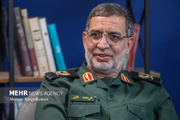



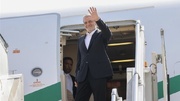



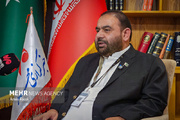
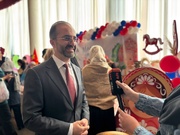
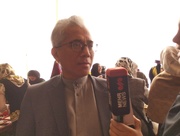
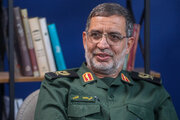

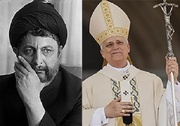
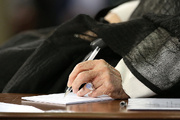
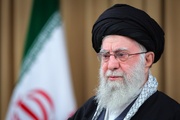


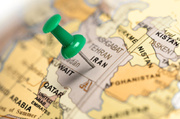
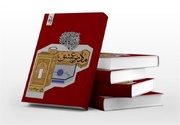
Your Comment